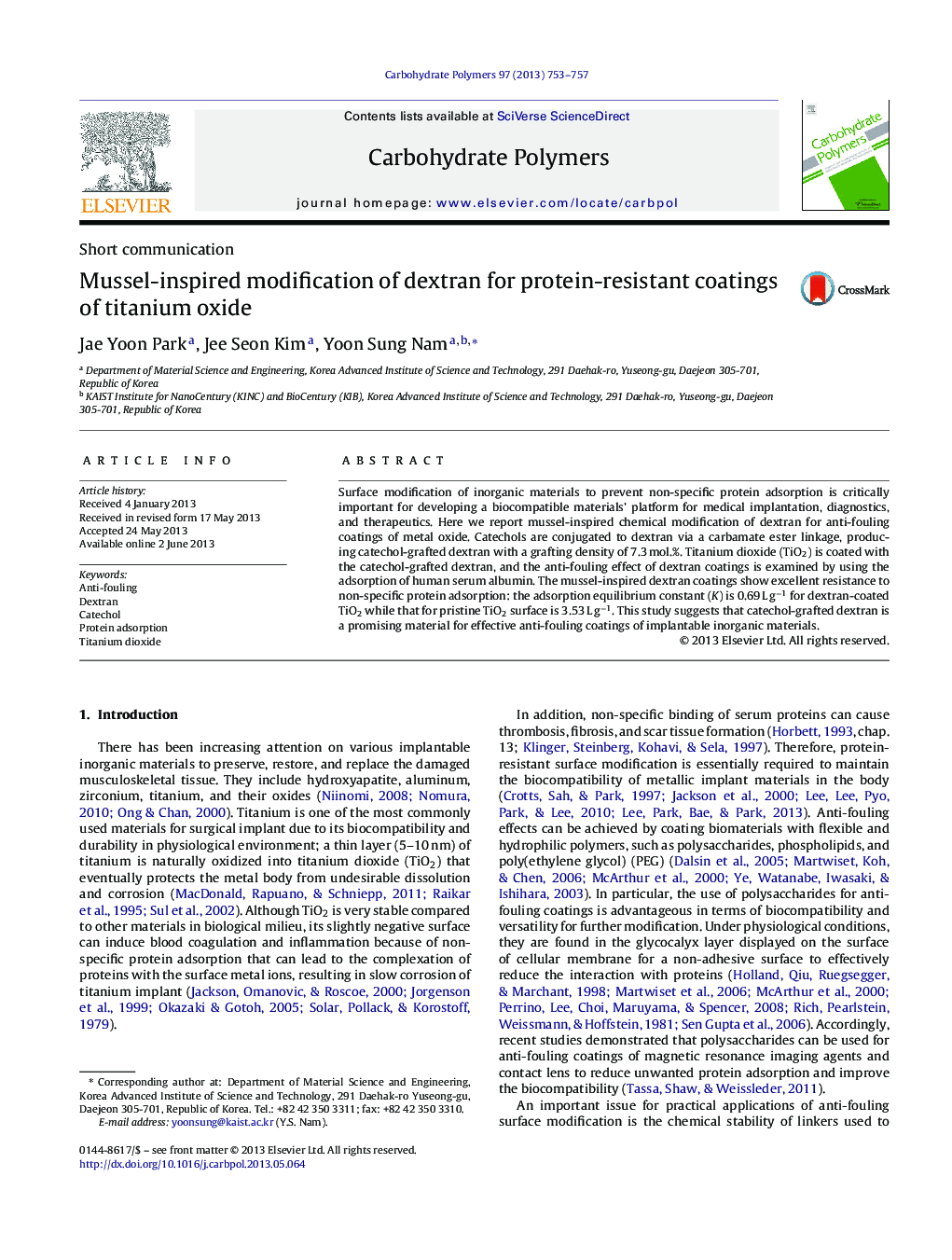| Article ID | Journal | Published Year | Pages | File Type |
|---|---|---|---|---|
| 10597151 | Carbohydrate Polymers | 2013 | 5 Pages |
Abstract
Surface modification of inorganic materials to prevent non-specific protein adsorption is critically important for developing a biocompatible materials' platform for medical implantation, diagnostics, and therapeutics. Here we report mussel-inspired chemical modification of dextran for anti-fouling coatings of metal oxide. Catechols are conjugated to dextran via a carbamate ester linkage, producing catechol-grafted dextran with a grafting density of 7.3Â mol.%. Titanium dioxide (TiO2) is coated with the catechol-grafted dextran, and the anti-fouling effect of dextran coatings is examined by using the adsorption of human serum albumin. The mussel-inspired dextran coatings show excellent resistance to non-specific protein adsorption: the adsorption equilibrium constant (K) is 0.69Â LÂ gâ1 for dextran-coated TiO2 while that for pristine TiO2 surface is 3.53Â LÂ gâ1. This study suggests that catechol-grafted dextran is a promising material for effective anti-fouling coatings of implantable inorganic materials.
Related Topics
Physical Sciences and Engineering
Chemistry
Organic Chemistry
Authors
Jae Yoon Park, Jee Seon Kim, Yoon Sung Nam,
